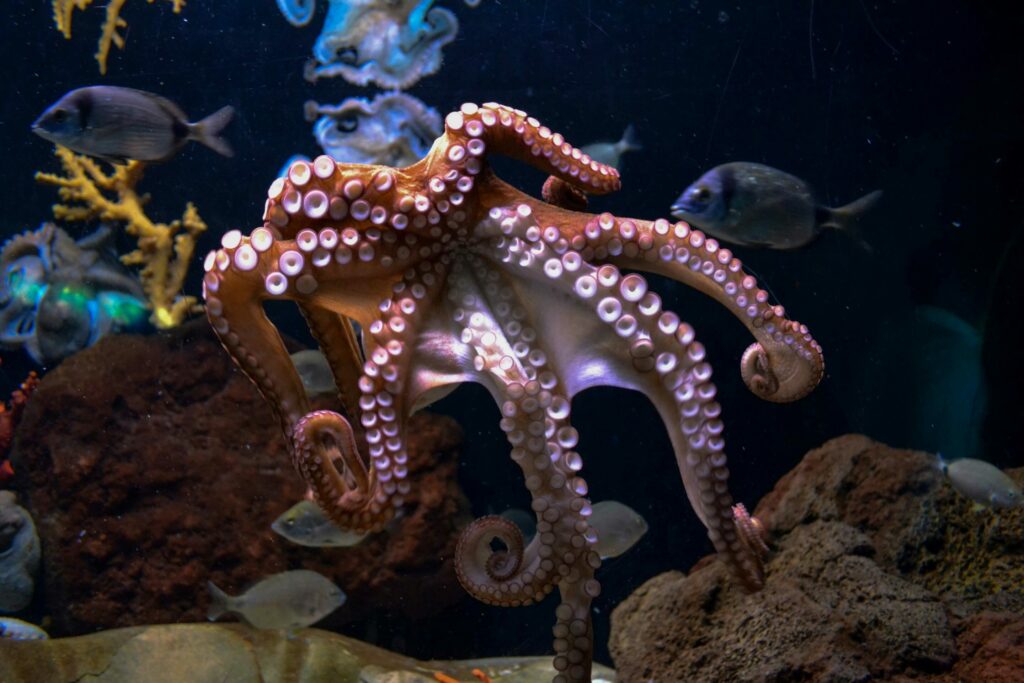Campaigners are calling on a Spanish seafood company to scrap plans to build the world’s first octopus farm as new documents reveal that it has failed to consider the threats that the farm would pose to wildlife, the environment and public health.
The company, Nueva Pescanova, plans to farm around one million octopuses in an aquatic factory farm annually. Animal welfare NGOs Compassion in World Farming, Eurogroup for Animals and AnimaNaturalis are urging the company to immediately stop the project.
According to the NGOs, the company’s website claims that it is committed to ‘maintaining biodiversity’, ‘protecting the ecosystem’ and ‘promoting the circular economy’.
However, its own environmental report for the farm at the Port of Las Palmas, Gran Canaria, was considered insufficient by the Canary Islands Government and the probability of negative impacts to be ‘significantly high’ by the government.
Among others, the farm could pose a public health risk by using nearby seawater which is not of a high enough quality to be used for human food production. It could also cause pollution, odour concerns, and discharges that could contribute to the already highly contaminated harbour waters. The farm could threaten dolphins and turtles near the site.
Octopuses are considered to be unique, intelligent, naturally solitary creatures who are not suited to the overcrowded conditions that are typical of factory farms. This would increase aggression and can ultimately lead to cannibalism. They are also carnivorous, meaning they need to be fed wild fish in captivity, an unsustainable practice that would put extra pressure on already overexploited fish populations.
On World Octopus Day last year (8 October), 75 NGOs, experts and public figures, led by Compassion and Eurogroup, wrote to the Canary Islands Government urging it to reject the plans. Thousands of supporters also took action, urging the President of the community to stop the octopus farm.
The company’s environment report has been rejected and it still needs to obtain several permits and licenses from the local authorities to start operating. An Environmental Impact Assessment (EIA) is critical in the process and without that the other permits will not be issued, according to the NGOs. Pending the assessment, the farm has not yet been approved.
Is there any EU legislation against octopus farms? “As invertebrate species, octopuses are currently not included under any EU farm animal welfare legislation protections,” Compassion in World Farming told The Brussels Times. “While we have called for an EU ban on octopus farming in the past, no EU legislation against octopus farming is currently in place.”
As previously reported, different forms of octopuses, such a squid and cuttlefish, are imported in huge quantities to the EU. The rapid escalation of unregulated fishing of squid poses a direct threat not only to the squid, but to the oceanic food web in which they play a critical role, including as a food source for tuna.
The unregulated fishing and import of octopuses are a violation of the EU IUU regulation on illegal, unreported and unregulated fishing. Such fishing “depletes fish stocks, destroys marine habitats, distorts competition, puts honest fishers at an unfair disadvantage, and weakens coastal communities, particularly in developing countries”.
M. Apelblat
The Brussels Times

